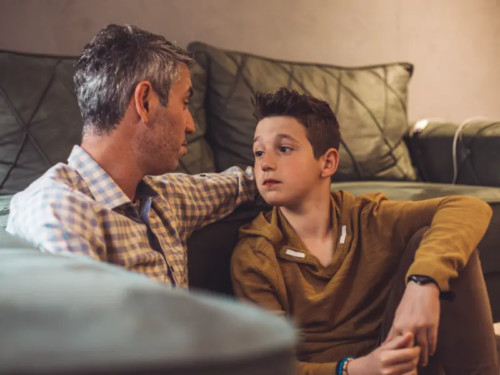
Table of Contents
Journaling Prompts to Help You Process a Trauma Anniversary
Written By: Charlie Health Editorial Team

Clinically Reviewed By: Dr. Don Gasparini
December 13, 2023
3 min.
Many people feel heightened emotions around the anniversary of a traumatic experience. These journaling prompts can help you cope.
Learn more about our Clinical Review Process
Table of Contents
The anniversary of a traumatic event can trigger increased feelings of anxiety, depression, and sadness for survivors—a common reaction known as the anniversary effect or anniversary reaction. Experts believe that personal and cultural factors contribute to the anniversary effect, like the way traumatic memory is stored in the body as well as media attention and community dialogue that may happen during a large-scale trauma anniversary, respectively.
Preparing for a trauma anniversary, though, can help survivors manage symptoms and emotions associated with the anniversary effect. Below, we delve into how journaling prompts can help survivors process a trauma anniversary (including a page of prompts you can download and use), and explore other resources for supporting survivors.
How does journaling help you prepare for a trauma anniversary?
Journaling around the time of a trauma anniversary can help survivors manage challenging emotions, like sadness and anxiety, that may arise and make a plan to practice self-care.
Journaling, though, is not a replacement for professional help. If you’re struggling to cope with traumatic stress or handle emotions linked with anniversary reactions, consider seeking professional mental health support. Here are some ways journaling around the time of a trauma anniversary can be a helpful way to manage anniversary reactions.
Express your emotions
Writing down what you’re thinking and feeling can provide a healthy outlet for processing difficult feelings, which may run especially high around the anniversary of a traumatic event.
Reflect on the year
Note the progress you’ve made, coping mechanisms you’ve developed, and your resilience. Acknowledge the strength it takes to navigate the anniversary and be gentle with yourself if emotions become overwhelming.

You can heal from trauma
We offer virtual, trauma-informed therapy personalized to your needs.
Identify triggers
Through journaling, you may identify specific triggers or concerns related to the upcoming anniversary. This awareness can help you plan strategies to manage potential challenges.
Identify coping strategies
Explore and document coping strategies that have been effective for you. Remind yourself of the tools and techniques you can use to navigate difficult emotions during the anniversary.
Set intentions for the day
Consider what you want to focus on, how you want to spend the day, and the kind of support you may need. This could include self-care activities, connecting with a loved one, or engaging in activities that bring comfort.
Set intentions for the future
Journal about the personal growth you want to achieve and the positive steps you can take beyond the traumatic anniversary.
Common reactions to trauma anniversaries
Anyone who has endured a traumatic experience—like sexual assault, natural disaster, war, the loss of a loved one, and more—may notice heightened emotions and physical symptoms around the time when the event took place. Feeling sad, scared, depressed, and anxious are all common reactions. Another common reaction is dealing with physical symptoms, like sleep disturbances, headaches, and gastrointestinal issues—all examples of how traumatic memory can manifest itself in the body. Essentially, a trauma anniversary is a trauma trigger for many.

How Charlie Health helps with the trauma anniversary reaction
If you’ve endured a traumatic experience and are struggling to cope with your trauma anniversary reaction, Charlie Health is here to help. Charlie Health’s virtual Intensive Outpatient Program (IOP) offers more than once-weekly support for young people with complex mental health conditions, including those who have endured trauma from sexual assault, violence, and more. Our trauma-informed program combines individual counseling, facilitated groups, and family therapy for holistic healing from trauma, post-traumatic stress disorder (PTSD), and more. Fill out the form below or give us a call to start healing today.




